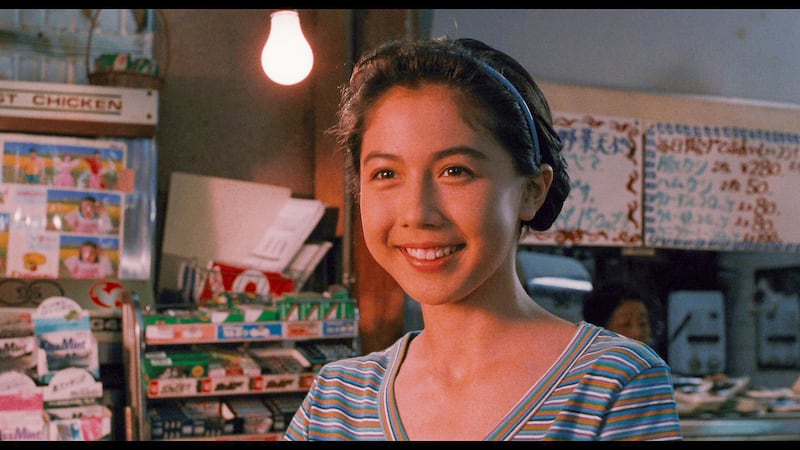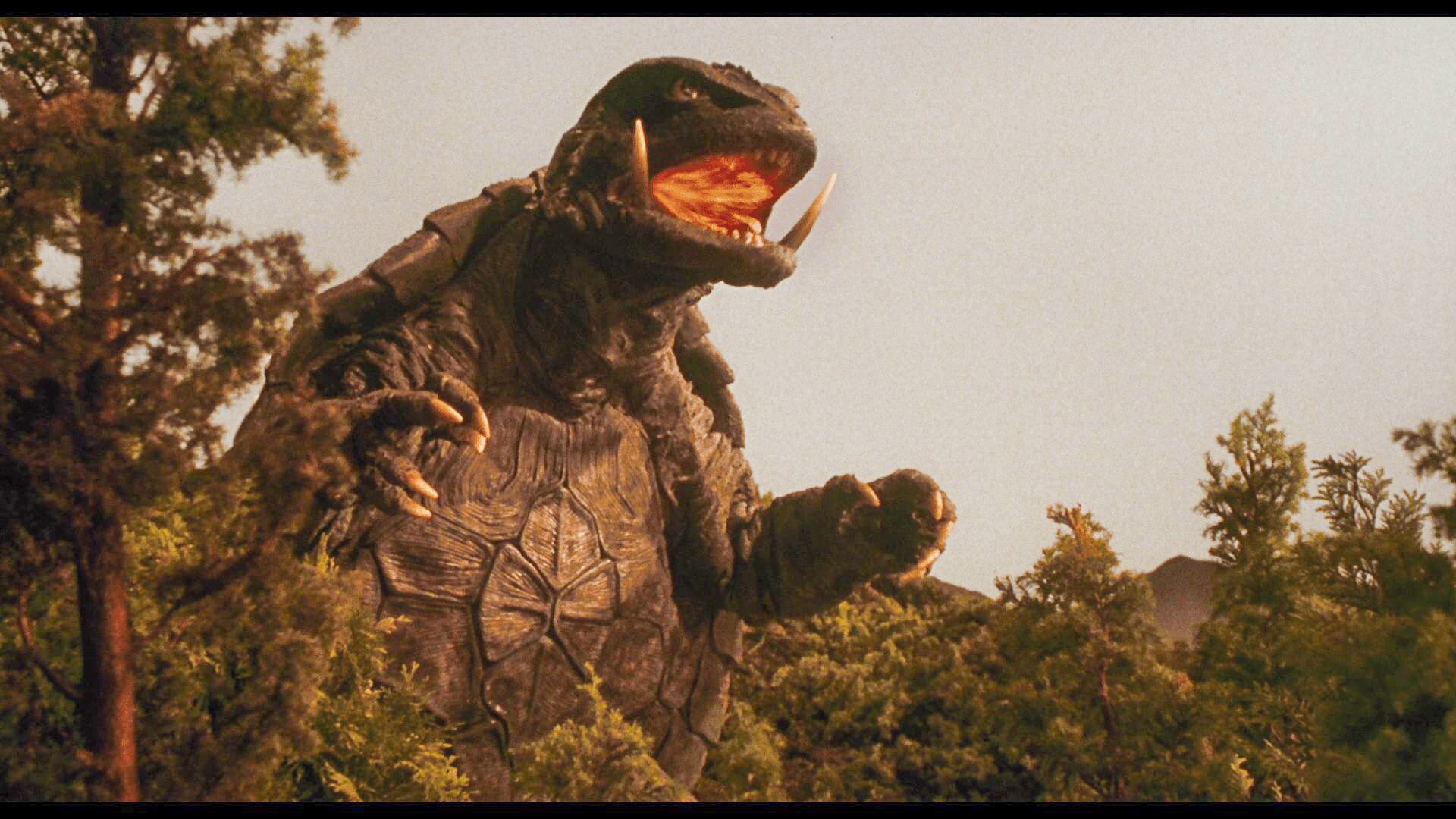Cinemagic co-owner Nicholas Kuechler can’t say exactly how his theater became an unofficial magnet for kaiju movie fans, but the evidence is accumulating.
Last summer, Shin Godzilla (2016) was the surprising top draw in a repertory monster movie series. Then, the sleeper hit of December, Godzilla Minus One, proved so popular Cinemagic would have kept it another two weeks if not for a mandatory The Boy and the Heron clearout.
What’s more, those Godzilla Minus One showings attracted moviegoers sporting deep-cut kaiju fandom: Kuechler even spotted a Daimajin T-shirt. “We got a sense that this was an audience interested in the history of the genre and weren’t just here because the new Godzilla movie looked cool,” he tells WW.
Fitting then, that the Hawthorne theater’s first special event of 2024 is the Gamera Heisei trilogy (1995-1999), screening Jan. 12-14.
For those without Gamera merch at home, the tortoise-esque flying monster was originally conceived as a competitor to Godzilla by a rival movie studio. Though it starred in eight Japanese movies between 1965 and 1980, Gamera never broke out to become known as much more than a hokey imitator.
But the 1990s changed all that, when Toho (Godzilla’s iconic home studio) released a trilogy of acclaimed hits that cast Gamera as a would-be protector of humanity—combining ecological fatalism with mystery-driven disaster spectacles.
When the trilogy screens at Cinemagic this month, it’ll do so with a special guest who knows Gamera well. Like, really knows him.
In the Heisei Gamera films, Ayako Fujitani played Asagi, a teen girl with a psychic connection to the towering monster. Fujitani had never acted when she was cast in Gamera: Guardian of the Universe (1995) at age 13, but the films sparked a winding and eclectic career in the arts that led her to Portland two years ago. She’s worked with directors like Michel Gondry and Takashi Miike, acted in acclaimed independent noir and horror films, and written novels.
Last year, Fujitani and her husband, Javier Gullón (screenwriter of the Denis Villenueve-directed Enemy), were just seeing a movie at Cinemagic when co-owner Ryan Frakes got to talking with them, and plans for screening the trilogy gradually hatched.
To Fujitani’s knowledge, this January marks the first time the Gamera trilogy has ever played on the big screen in the U.S. “Everybody knows Godzilla, but not Gamera, and I think it deserves some attention,” she tells WW.
Fujitani hasn’t seen the Gamera films since they came out, but her experiences during the production were life-changing. The daughter of actor Steven Segal and aikido master Miyako Fujitani, Ayako moved from Osaka to Tokyo to live with director Shusuke Kaneko and his wife during production. And of all the actors in the sprawlingly cast trilogy, she was the creature effects set’s most frequent visitor, the crew told her.
“It was just so much fun to see the process and the miniatures and how the city gets destroyed,” she says.

As for the role of Asagi, Fujitani’s go-to stance was staring upward into the sky, reading Gamera’s feelings with her telepathy, and then biting down on foreboding announcements like, “He’s here…”
She remembers director Kaneko’s valuable acting instruction on the difference between pretending versus achieving a character’s genuine belief. Kaneko also had a special note for every actor in his Gamera films.
“We’re not going to say in this movie, but in this world, turtles don’t exist,” Fujitani remembers the message. “So when [characters] see Gamera, they don’t think, ‘Oh it’s a giant turtle.’”
Fujitani’s live Q&As on Jan. 12 and 14 (at screenings of the first and third films only) will be the latest guest appearance for Cinemagic after hosting legendary B-movie director Philippe Mora for a full week last fall. What’s more, the Gamera movies suit Kuechler and Frakes’ priorities to screen international genre films—crowd-pleasers in every language.
“This is not necessarily an insult, but we always talk about how the [foreign films] we’re playing don’t have any sad Europeans,” Kuechler says. “For so many people, that is kind of where international film starts and stops.”
That said, the Gamera movies do get darker and more challenging as they go. The first movie enjoys a little more wonderment as Gamera battles the winged, man-eating Gyaos. But by the trilogy’s conclusion, Gamera 3: Revenge of Iris, the series is posing unflinching ethical questions about the loss of life caused by Gamera’s seemingly pro-human battles with rival monsters.
“It’s kind of like what we’re used to with Marvel, where you just wave away thoughts that there’s no way they emptied all those buildings in time,” Kuechler says. “And then the third [Gamera] just sticks that [human destruction] right there in front of you the whole time.”
For those reasons, Fujitani is excited to share the first film (only) with her 5- and 7-year-olds on Jan. 12 and the sequels with a Cinemagic crowd that might be more ready for kaiju complexity than anyone could have predicted.
“[This event] makes me so happy about being in Portland,” Fujitani says. “There are so many indie theaters and so many audiences and weird movies.”
SEE IT: The Gamera Heisei trilogy plays at Cinemagic, 2021 SE Hawthorne Blvd., thecinemagictheater.com. Multiple dates and showtimes, Jan. 12-14. $7-$9.

